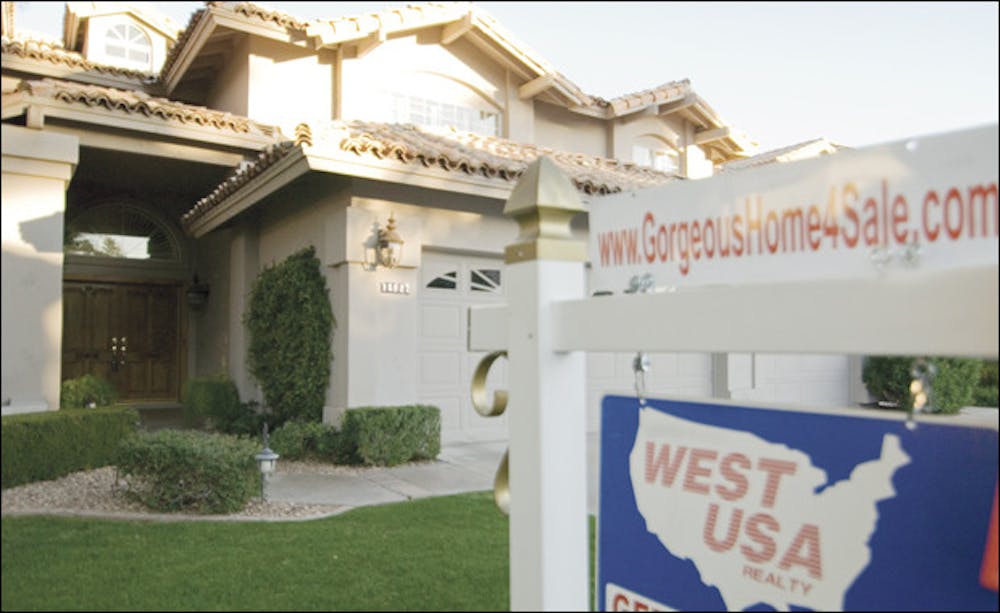Growing foreclosure rates are responsible for a new housing trend that few Arizonans would have guessed in previous years.
The median price for a home in Tucson is now higher than that in Phoenix, according to a study done by the realty-studies program at the Polytechnic campus this year. The study also reported that foreclosures represented 48 percent of transactions in the housing market in January.
The realty-studies program reported that the median price for a resale home in Phoenix during January was $135,000.
Though median prices for Tucson homes were always lower than in the Phoenix metropolitan area, said John L. Strobeck, owner of Bright Future Business Consultants, a company that compiles real-estate data, the median price for a resale home in the Tucson metro area with foreclosures was $160,000 during January.
Strobeck said he believes the foreclosure rate is causing prices to decrease, and foreclosures are hitting the Valley harder.
“Sixty percent of homes are being foreclosed in Phoenix and only 32.22 percent [are foreclosed] in Tucson,” Strobeck said.
Strobeck said he is unsure of the exact cause of the high foreclosure rate in Phoenix, but speculated that many people bought their homes using bridge financing.
“People bought a house planning on refinancing it in three to five years, thinking it would be worth more,” Strobeck said. “The problem with that is, now their homes aren’t worth more than what they paid for it and they can’t afford the monthly payments.”
Director of realty-studies program Jay Butler also said he believes this change in resale home values is due to the rising foreclosure rates.
“The Phoenix metropolitan area has been on a pretty steady decrease because of the foreclosure activity,” Butler said. “Tucson has their numbers, but they aren’t into the hyper market like we are.”
Butler described the hypermarket as the rapid increase in prices of homes that occurred from late 2004 to mid 2005, caused by so many people wanting to purchase homes during that time.
“Markets in other places became so competitive that the housing market couldn’t sustain itself,” Butler said.
On the other hand, though, Butler also added that the slow economy is causing some people to buy homes.
“More people are renting these days, but some people are buying homes to invest in because prices are so low. They are expecting strong appreciation somewhere in the future,” he said.
As for the economy, Butler doesn’t expect to see a turnaround in the housing market for a couple years.
“I don’t think anyone is expecting the economy to turn around until about 2010 or 2011,” Butler said.
Phoenix real-estate specialist Ann Morgan said realtors have to be careful to protect buyers in the current market.
Morgan also said she has experienced many short sales, which occur when the property is not worth what is owed on it.
“Banks don’t want to sell the short sales, so they have to agree to take less than what is owed,” Morgan said. “These short sales are a result of the hurting economy.”
Reach the reporter at allison.carlin@asu.edu.




